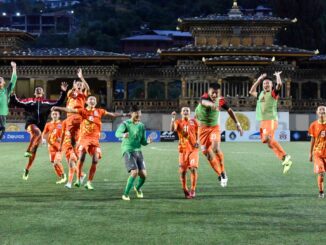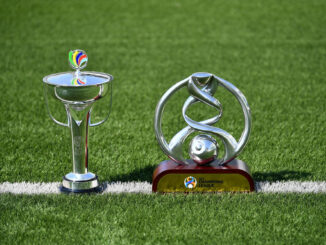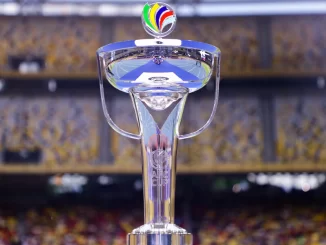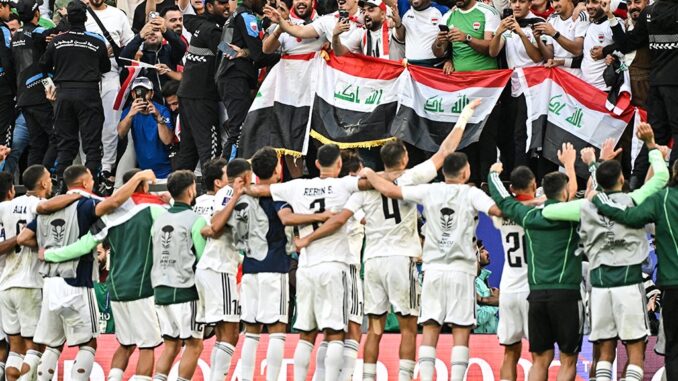
For an arena that only hosted its first match after the global pandemic, the Education City Stadium has witnessed quite a few giant killing occasions.
Iraq’s 2-1 win against Japan on Friday was the latest in the list, after South Korea’s group stage win against Portugal, Morocco’s penalty shootout triumph against Spain, and Croatia’s undoing of favorites Brazil, all at the World Cup.
Except, Iraq’s win did not come as a surprise, but something in the offing.
An inspired display on the pitch mirrored a pulsating atmosphere in the stands that ensured the Lions of Mesopotamia had the edge. A section of the crowd drummed tirelessly and was organised enough to make the rest follow their beat starting from the very first minute. They set the tempo.
“I sacrifice my blood and soul for you Iraq!” they chant in Arabic as Iraq launched into an early attack. It took a towering header from Aymen Hussein who capitalised on Japanese goalkeeper Zion Suzuki’s mistake to stop the chants. They erupted with joy and the stadium roof could barely withstand the valiant cry. The floors shook.
“We will add another one,” shouted a boy in his mid-twenties, draped in Iraq’s flag, at the top of the section. So you’re from Iraq? I ask. “No, I am from Lebanon,” he replies, adding he’s rather comfortable speaking in French.
It is almost half-time and Hussein puts another thumping header in the back of the net to put Iraq up two goals to nil. “I’m here to support our neighbors. They’ve been through so much recently and I knew this match would be good for them,” he says as the cheers intensify after the half-time whistle.
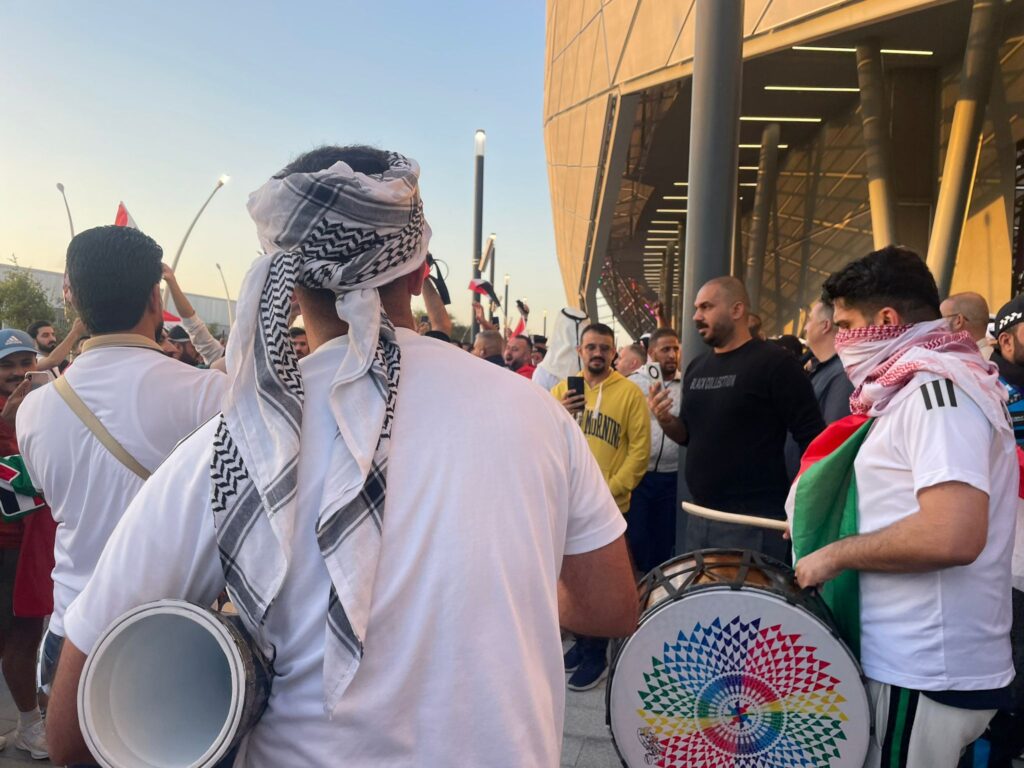
Iraqis from all over the world have descended to the Education City Stadium – and Aymen, 25, is one of them. Currently based in Sweden, he came to Doha to watch Iraq play. “Ya Allah!” shouts Aymen, who coincidentally shares his name with the day’s goalscorer, as Wataru Endo pulls one back with five minutes of added time to play.
Nervousness kicks in as the Japanese register multiple entries into the box. After five long minutes, Iraq is safe, pulling off their first win over the Samurai Blue in over 37 years. That came with the Iraq fans treating every Japanese move with jeers and boos as if the Samurai Blue were trapped in the hostility of Tigris-Euphrates Valley. The celebrations will go on.
“That was as good as it can get,” says Ali, a 30-year-old Iraqi, as fans chant their way to the tram station.
Currently based in London, Ali says he has been following the national team since he was four. “The national team is what connects me back to Iraq. Growing up, I saw Iraqi people’s love for football. Everyone from grandmother to the toddler loves football in Iraq,” he adds.
That was evident in the build-up to the match. As thousands moved towards the Education City Stadium, which would later count to 38,663 in attendance, Iraqi flagbearers came in families. From old passionate granddads to young enthusiastic primary schoolers, the composition was diverse for a football stadium.
But what will it mean for the people back home? “It is going to be amazing,” Ali says as the crowd moves slowly. “Go turn on your TV and watch for yourself. Everyone is going to be celebrating tonight.”
It is not long before clips of people celebrating on the streets start emerging on X, formerly known as Twitter, from all across Iraq, matching the rave of those present to witness it live.
“Football gives us a sense of freedom,” says Sajjad, an Iraqi journalist based in Doha for 25 years, as he disperses from the chanting crowd on their way out of the stadium. “People only associate us with Saddam [Hussien], the [US] invasion, and wars. Matches like these express the true sentiment of Iraqi people – we’re much more than just that.”
As a former Iraq correspondent of the Arabic daily Al Sharq, Sajjad has been closely following the Iraq national team from the turn of the century, including the 2007 triumphant side. Mainly composed of the players that won the 2000 AFC Youth Championship, the Lions of Mesopotamia rose through the fringes of war to complete the fairytale.
A semi-final journey in 2015 is the best they have managed ever since, preceded by a quarter-final appearance in 2011 in Doha and a loss against eventual winners Qatar in 2019’s round of 16 fixture. Sajjad thinks Iraq can better their tally this time around in Doha.
“Insh’Allah we will win the next match,” he says, adding he has bought tickets to all of Iraq’s group games and will buy the knockout ones as they advance. Iraq will now qualify as the group leader, regardless of their result against Vietnam.
Sajjad, however, will not be the only one waiting to get his tickets if Iraq goes far enough in the tournament. “I will return for the final match, for my country Iraq if they go all the way,” Ali says, optimistically suggesting Iraq can build on the day’s win and stretch to qualify for the World Cup.
But for now, he has a flight to catch – and maybe another one to book if Jesús Casas’ side rise above their darkhorse status and leverage the newfound confidence.
Listen to The Asian Game Podcast as we review the opening week at the AFC Asian Cup 2023


